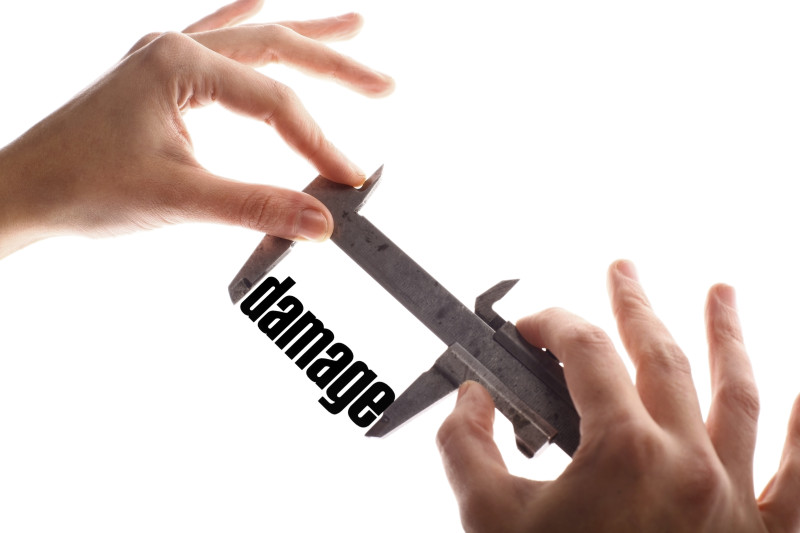Transvaginal mesh (TVM) is a plastic mesh product that is surgically implanted in women to repair or support weakened vaginal walls and other compromised tissue. Many women suffer from a condition called pelvic organ prolapse (POP), where an organ like the bladder prolapses from its normal position in the body and presses against the walls of the vagina. One of the main causes of this condition is childbirth. The FDA approved TVM for treatment of women with POP and other conditions like stress urinary incontinence more than a decade ago.
Sadly, TVM has caused terrible problems for thousands of women. Not only after transvaginal mesh was marketed and sold, women began complaining of different, often more serious problems. Complications include erosion of the vaginal wall, infections, urinary problems, pain during sexual intercourse, scarring, bowel or bladder perforation, and recurrence of pelvic organ prolapse or incontinence. Women have been forced to undergo surgeries to attempt to repair the damage done by transvaginal mesh. In some cases injured women have endured multiple surgeries.
The lawsuits followed. Fortunately for these (often severely) injured women, these cases are finally getting to trial and to jury verdicts. The good news is that some plaintiffs have received millions from juries for their injuries. But the TVM manufacturers have also scored victories.
I’ve collected a list of TVM cases and the jury verdicts involved. Many other cases are moving to trial, and I will report on those outcomes when verdicts are reached in those cases, but this will give you a sense of what is going on with transvaginal mesh cases:
Gross v. Ethicon, Inc., and Johnson & Johnson et al., (Superior Court, New Jersey)
Product: Gynecare Prolift Pelvic Floor Repair System
Jury Award: $11,110,000.00 total award; $3,350,000.00 in compensatory damages, $7,760,000.00 in punitive damages.
Date of Jury Verdict(s): February 25 and 28, 2013
This was one of the early jury transvaginal mesh verdicts. Linda Gross brought claims against Ethicon, Inc., and Johnson & Johnson for failing to warn her and her doctor about the potential risks of using the Gynecare Prolift mesh product. Ms. Gross also brought a claim for misrepresentation of the product on the TVM brochure, as well as defective design, manufacture, and instructions.
Ms. Gross filed her lawsuit in 2008 in state superior court in Atlantic City. In 2006, the Gynecare Prolift mesh was implanted in Ms. Gross in 2006 to treat pelvic organ prolapse (POP), which I discussed in a previous article. Following TVM implantation, Ms. Gross suffered from mesh erosion, scarring and inflammation, among other things. Ms. Gross has eighteen surgeries to attempt to repair damage caused by the TVM.
The jury found that the companies failed to warn Ms. Gross of the risks involved with the device, and that this failure to warn adequately “proximately” caused her injuries. However, the jury also found that the device was not defectively designed, and also did not find fraudulent misrepresentation.
After compensatory damages were awarded, the trial judge permitted consideration of punitive damages. The jury then awarded $7,760,000.00 in punitive damages. The total award was $11,110,000.00.
Huskey, et al., v. Ethicon, Inc., and Johnson & Johnson, et al., (West Virginia Federal Court)
Product: Gynecare TVT Obturator
Jury Award: $3,270,000.00 in damages for Jo Huskey and husband
Date of Jury Verdict(s): September 5, 2014
Jo Huskey and her husband brought claims against Ethicon, Inc. and Johnson & Johnson for negligence, failure to warn, and defective design. Ms. Husky was implanted with the Gynecare TVT Obturator mesh product in February 2011 to treat her stress urinary incontinence. However, after the implantation surgery, Ms. Huskey suffered mesh erosion, pain, and “dyspareunia,” which is painful or difficult sexual intercourse. Ms. Huskey had revision surgery in November 2011, but SUI symptoms returned.
At trial, among other things, the Huskeys argued that the plastic “polypropylene” material in the Gynecare TVT-O mesh was defective and ill-suited for implantation in a woman’s body.
The jury awarded the couple $100,000.00 for medical costs, $470,000.00 for pain and suffering and mental anguish (past), and $2,500,000.00 for pain, suffering, and loss of enjoyment of life. Mr. Huskey was awarded $200,000.00 for loss of consortium. The total jury award was $3,270,000.00.
Unfortunately, the judge ruled prior to trial that punitive damages would not be permitted.
Salazar v. Boston Scientific, Inc., et al., (District Court, Dallas, Texas)
Product: Obtryx Transobturator Mid-Urethreal Sling System
Jury Award: $73,465,000.00 in damages, for Martha Salazar, her husband
Date of Jury Verdict(s): September 8, 2014
This was a big one.
Martha Salazar was implanted with the Obtryx Transobturator Mid-Urethral Sling System in January 2011 to treat incontinence. She later experienced pain, difficulty having sex, and nerve damage, according to the Salazars’ allegations in their complaint. Ms. Salazar was forced to endure several surgeries to attempt to repair the damage done by the transvaginal mesh product. She also walks with a permanent limp.
The jury found that a safer design of the TVM would have prevented or reduced her injuries, and also found a safer redesign was “economically feasible.” The jury also found that Boston Scientific was negligent in marketing the TVM device.
The jury then awarded $1,500,000.00 for pain and mental anguish, $10,000,000.00 for future pain and anguish, $750,000.00 for physical impairment, $5,000,000.00 for future physical impairment, $3,000,000.00 in future medical care, $1,700,000.00 for lost earning capacity. Ms. Salazar’s husband was awarded 1,515,000.00 for loss of consortium and loss of “household services.”
On top of those large sums, the jury then awarded a staggering $50,000,000.00 in punitive damages. Plainly, this case moved this Texas jury, and they decided to make Boston Scientific pay for the extreme suffering caused by the failed transvaginal mesh.
Unfortunately, in this transvaginal mesh case, Texas law operated to reduce the final money figure to $34.6 million.
More transvaginal mesh jury verdicts will follow in later posts.
 North Carolina Product Liability Lawyer Blog
North Carolina Product Liability Lawyer Blog



